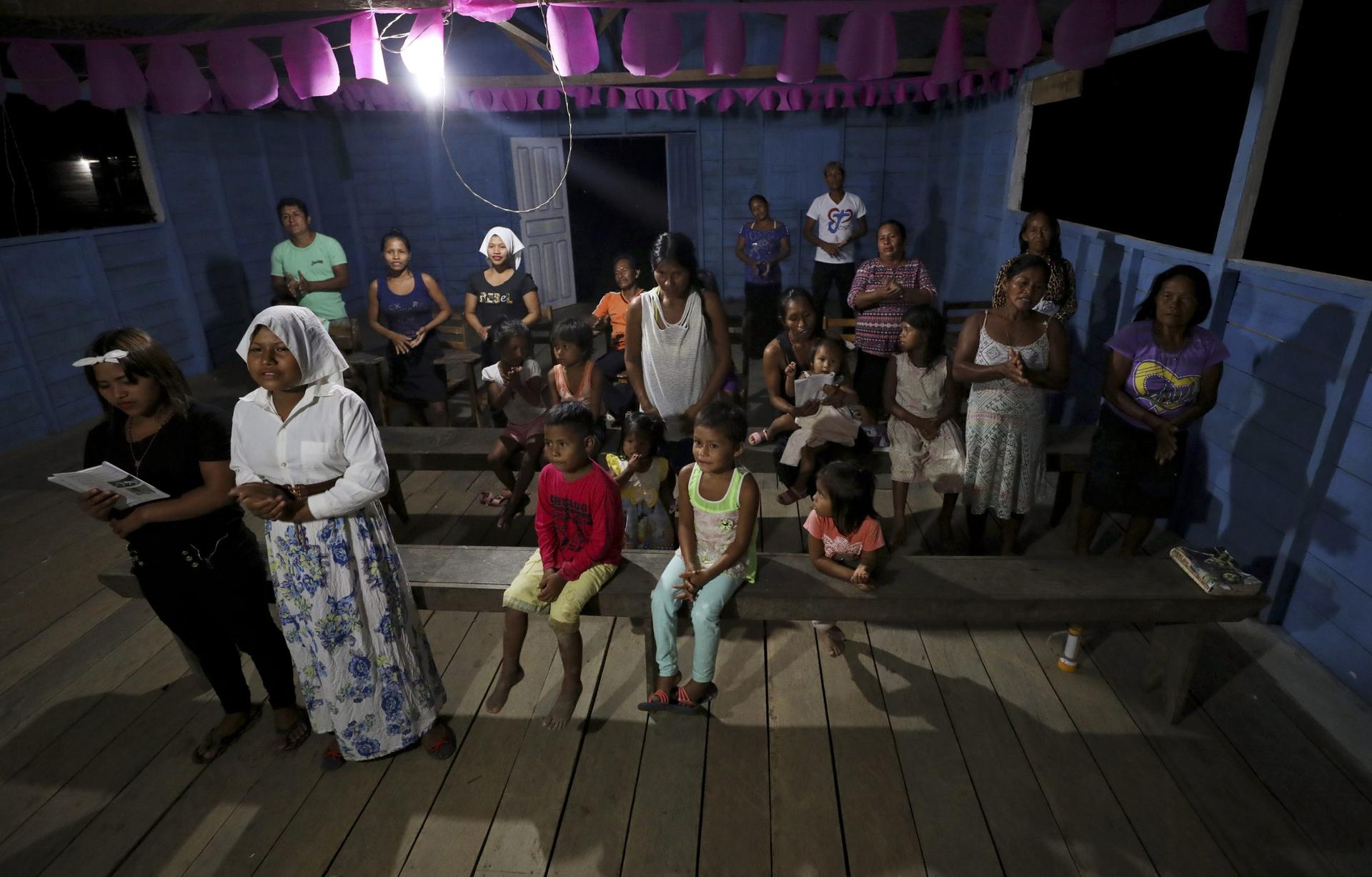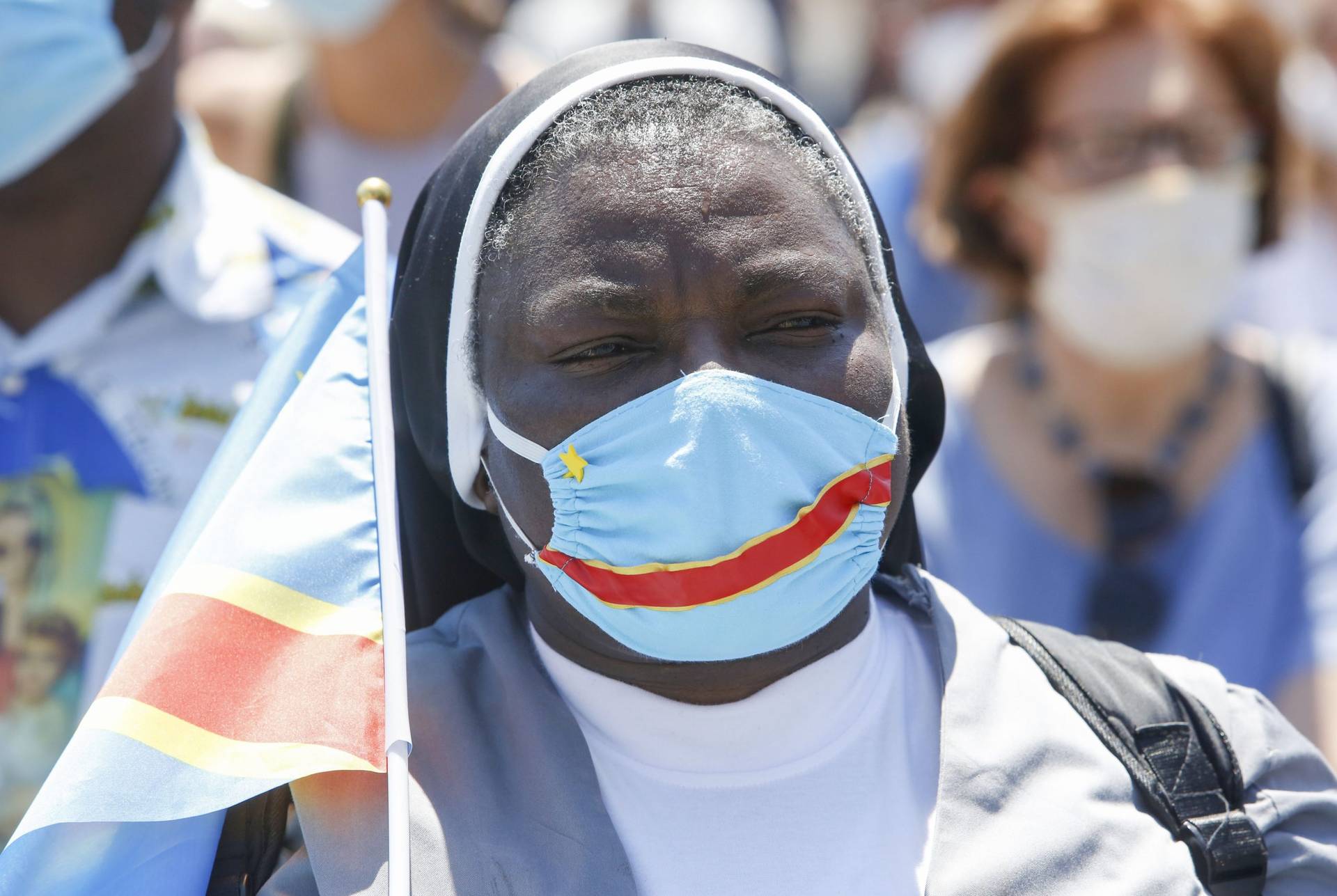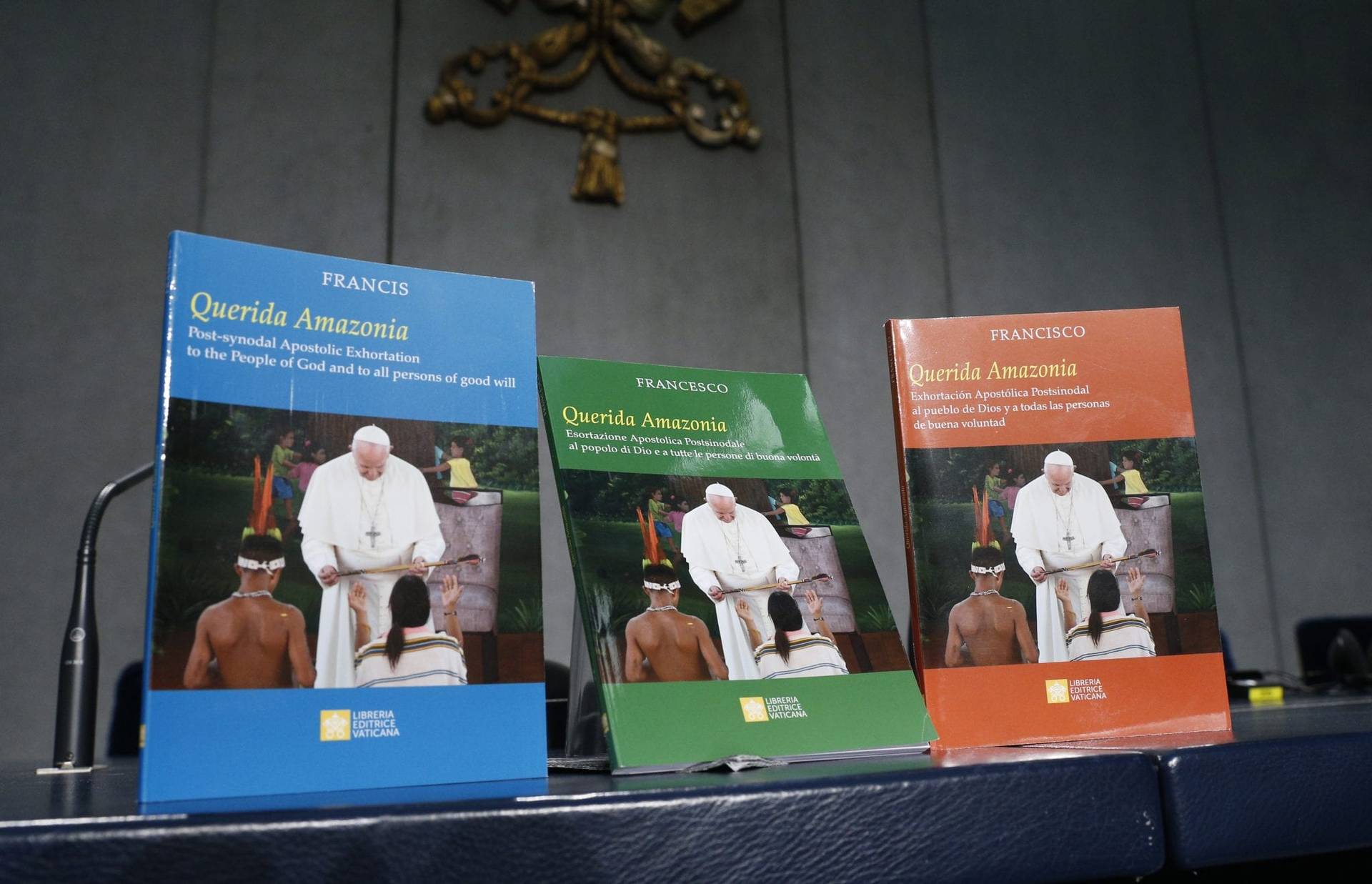ROME – Father Justino Sarmento Rezende, one of the few indigenous priests participating in this month’s Synod of Bishops on the Amazon, has weighed in on the issue of celibacy, saying it is a virtue everyone can live, but refrained from offering an opinion on the issue of married priests in the Amazon.
Asked during an Oct. 17 press conference his thoughts on comments made by Bishop Emeritus Erwin Kräutler of Xingu, Brazil that implied the priest shortage in the Amazon, and specifically indigenous communities, is in part because indigenous people have difficulty understanding celibacy, Sarmento Rezende shot down the notion, saying celibacy is “a gift from God” that anyone can live, albeit with effort.
“People from every culture in the world can live in celibacy when, freely and not because they have been forced, a person says, ‘I want to adopt this lifestyle,’” said Sarmento Rezende, an expert in indigenous spirituality and pastoral inculturation who comes from Brazil.
Celibacy, he said, “is not something that was born with the human person,” but is a practice that was established throughout the history of the Church. Because of this, he said, no one is naturally ready to live celibacy, which is a challenge not just for indigenous, but “every normal person can have this difficulty.”
“So it’s very important to live celibacy by making an effort, with help and by living in the most balanced possible way,” he said, adding that if one day he decided that celibacy was no longer something he could live with, “then I would have to leave because it was something I decided.”
Yet Sarmento Rezende refrained from commenting on the much-debated proposal to ordain viri probati, or mature married men, as a solution to the regional priest shortage – a suggestion that Kräutler in a press briefing last Wednesday said has the backing of some “two thirds” of synod participants.
Rather than going into details, Sarmento Rezende simply said that at this juncture of the synod, “different ministries are something we are considering,” but he did not offer an opinion.
Sarmento Rezende also spoke of Pope Francis’s call in the opening document for the Oct. 6-27 synod, called the instrumentum laboris, for the Church to have “an Amazonian face,” meaning that bishops, priests and religious in the area come from the region, rather than from abroad.
“This starts from my own experience as a priest,” he said, recalling how, when he first discovering his call to the priesthood, it was after hearing missionaries evangelize his grandparents. At the time, he said he felt a strong desire to spread the Gospel, but in his own language.
Reflecting on his own cultural traditions as an indigenous person, Sarmento Rezende, who has been ordained for 35 years, said this “has helped me to dream, together with the Church, about a new way of evangelizing and carrying out this mission” with the indigenous themselves “as protagonists and interlocutors” in a new method he hopes will be developed during the synod, and implemented afterward.
The idea of inculturation was also backed by other panelists at Thursday’s briefing, including Archbishop Roque Paloschi of Porto Velho, Brazil, who was also present at Thursday’s press conference.
Questioned on whether inculturation could be seen as a surrender to paganism, Paloschi referred to a statement from retired pope Benedict XVI condemning proselytism, saying salvation comes from an encounter with Christ which, rather than taking one outside of their culture, brings them more fully into it.
Similarly, Leah Rose Casimero, academic coordinator of the Quality Bilingual Education Program for Wapichan children (QBEWC) in Guyana – formerly a British colony – said she was proud to present the initiative. She said the “first step is to create something better for our children in terms of our own education.”
Rather than always having other models imposed on their communities, she said, the project offers the Wapichan a learning curriculum with tools based in their local culture, language and traditions, including books for children and training for teachers, who speak English as well as the local indigenous language.
The project, which also has the backing of Guyana’s Ministry of Education and which is supported by the country’s Jesuits, is the result of “the same (process) we are doing here with the synod,” Casimero said. “It came about from the dialogue” among all parties involved, and then moved to implementation and the results are being studied.
“Often we speak as indigenous people, but not often are we listened to,” she said, voicing her belief that the same process of dialogue, action and implementation that allowed their project to start up is “the direction the synod is heading.”
Follow Elise Harris on Twitter: @eharris_it
Crux is dedicated to smart, wired and independent reporting on the Vatican and worldwide Catholic Church. That kind of reporting doesn’t come cheap, and we need your support. You can help Crux by giving a small amount monthly, or with a onetime gift. Please remember, Crux is a for-profit organization, so contributions are not tax-deductible.















